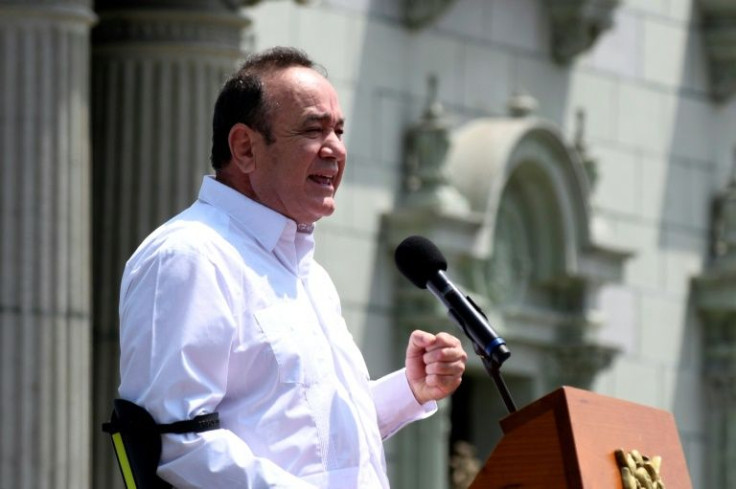In About-face, Guatemala President Calls For Strict Abortion Law To Be Shelved
Guatemala's President Alejandro Giammattei on Thursday called on Congress to shelve a new law ramping up prison sentences for women who choose to have an abortion, while banning both gay marriage and teaching on sexual diversity.
Giammattei called on the speaker to shelve the law, passed by his allies in Congress this week, saying he would veto it if it came to his desk because it violates the Constitution and international agreements signed by the country.
"If that law reaches my office, it will be vetoed, therefore, I recommend to the Congress of the Republic, with all due respect, that it please archive the decree," Giammattei said in a televised message.
The so-called Life and Family Protection Law punishes women who "have induced their own abortion or given their consent to another person to carry it out" with 10 years behind bars -- more than three times the current sentence of three years.
Abortion is only authorized in Guatemala when there is a threat to the mother's life.
The bill was passed by Congress on International Women's Day on Tuesday.

The bill introduced as well a reform to the Civil Code, which, if signed by the president, would "expressly prohibit same-sex marriages" in Guatemala.
It would also ban public and private teaching initiatives on sexual diversity, which it describes as "promoting in children and teenagers policies or programs that tend to lead to diversion from their sexual identities at birth."
Giammattei's rejection of the law came a day after the Christian Ibero-American Congress for Life and Family, which brings together conservative groups opposed to abortion and same-sex marriage, called the Central American country the "pro-life capital of Ibero-America."
"This is a day to celebrate that we have a country that learns, that teaches and does everything possible to respect life from conception to natural death," the president declared.
But on Thursday, he distanced himself from the law, saying it had not originated in his office.
"I want to clarify that this initiative was not sent by the executive... We cannot agree, despite the fact that Guatemala has been declared the Ibero-American Capital for life," he said.
© Copyright AFP {{Year}}. All rights reserved.




















